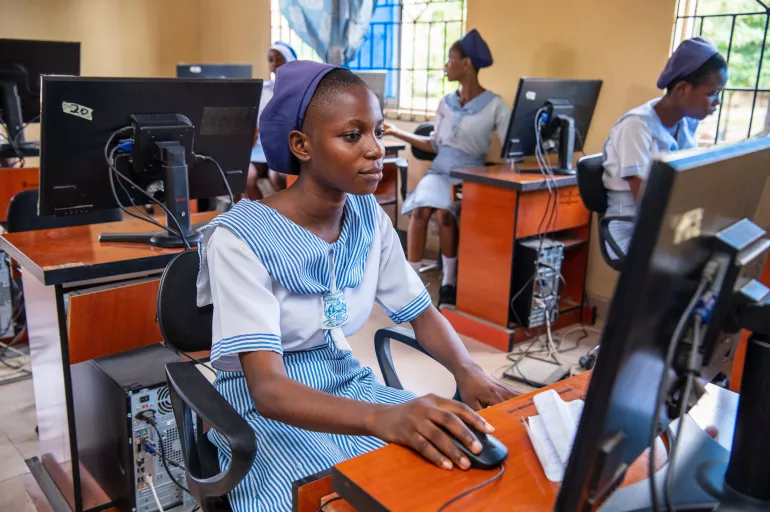
Nigeria’s education system faces numerous challenges, ranging from poor infrastructure to inadequate funding, leaving millions of children without access to quality education. Despite being Africa’s largest economy, the country struggles with one of the continent’s highest rates of out-of-school children, estimated at over 10 million, with the majority concentrated in northern Nigeria. Poverty, insecurity, and cultural factors have compounded the issue, creating a widening gap between those who can afford private education and those reliant on the public system.
Government programs like the Universal Basic Education (UBE) initiative were introduced to improve access to education, but their implementation has often been marred by inefficiencies and corruption. Many public schools lack basic facilities such as classrooms, toilets, and teaching materials, while teachers are often poorly trained and underpaid. This has led to poor learning outcomes, with many students unable to meet minimum literacy and numeracy standards.
The COVID-19 pandemic further exposed the fragility of Nigeria’s education sector, as school closures and the shift to remote learning excluded millions of children without access to technology or stable electricity. While some private schools adapted by introducing e-learning platforms, public schools struggled, widening the digital divide.
Addressing these challenges requires a multi-pronged approach. First, increased investment in education is critical to upgrading infrastructure, training teachers, and providing necessary resources. Partnerships with the private sector and international organizations can also play a significant role in bridging funding gaps and introducing innovative solutions. For instance, low-cost digital learning tools and community schools have shown promise in improving access and quality in underserved areas.
Additionally, addressing insecurity in the North is essential to ensuring children can attend school safely. Strengthening public-private partnerships and introducing vocational training programs can also help prepare students for the job market, particularly in a rapidly changing global economy.
Ultimately, the success of education reform in Nigeria depends on strong political will and a commitment to long-term investment. By prioritizing education, Nigeria can unlock its demographic potential and build a skilled workforce capable of driving the country’s development forward.